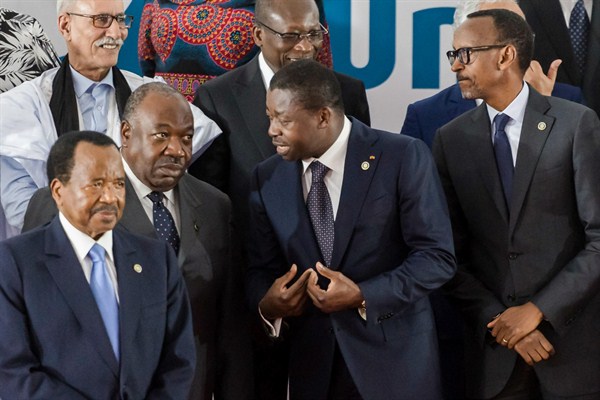During his trip to Nigeria last week, in between doling out advice to young entrepreneurs and dancing at the New Afrika Shrine in Lagos, French President Emmanuel Macron took a few moments to address the political crisis in Togo, which has dragged on for nearly a year. Yet those hoping for a substantive intervention from the leader of Togo’s former colonial power were no doubt left disappointed, as Macron kept things brief and perhaps deliberately vague. His message: “The status quo is no longer possible.”
Predictably, loyalists of President Faure Gnassingbe, whose family has run Togo for half a century, as well as those who want him gone, both tried to spin Macron’s comments for their own purposes. Gilbert Bawara, the civil service minister, claimed the government also had no interest in the status quo and was working to forge a compromise that could lead to genuine political and constitutional reforms. Meanwhile, an opposition source told Radio France Internationale that Macron was clearly calling for some kind of “transition” and “rupture in governance.” The fact that both readings were plausible suggested that Macron had managed to say nothing at all.
The episode is entirely consistent with the nature of international engagement on Togo over the past 11 months. Last August, thousands of Togolese opposition supporters donned bright red clothing and took to the streets of multiple cities, the first in what became a series of protests to voice frustration with dynastic rule and demand reforms, principally the return of presidential term limits. Despite a typically harsh crackdown by Togolese security forces, who fired live rounds along with tear gas in some instances, the protest movement proved remarkably durable, eventually forcing Gnassingbe’s government to agree to negotiate with a coalition of opposition parties.

